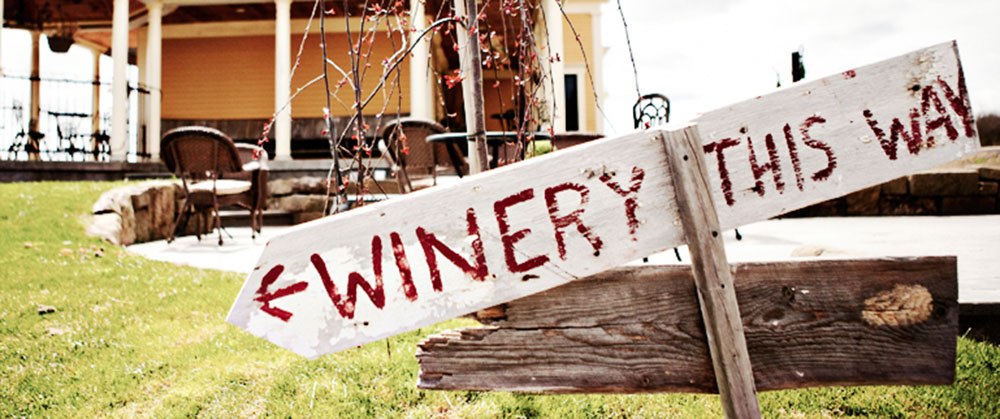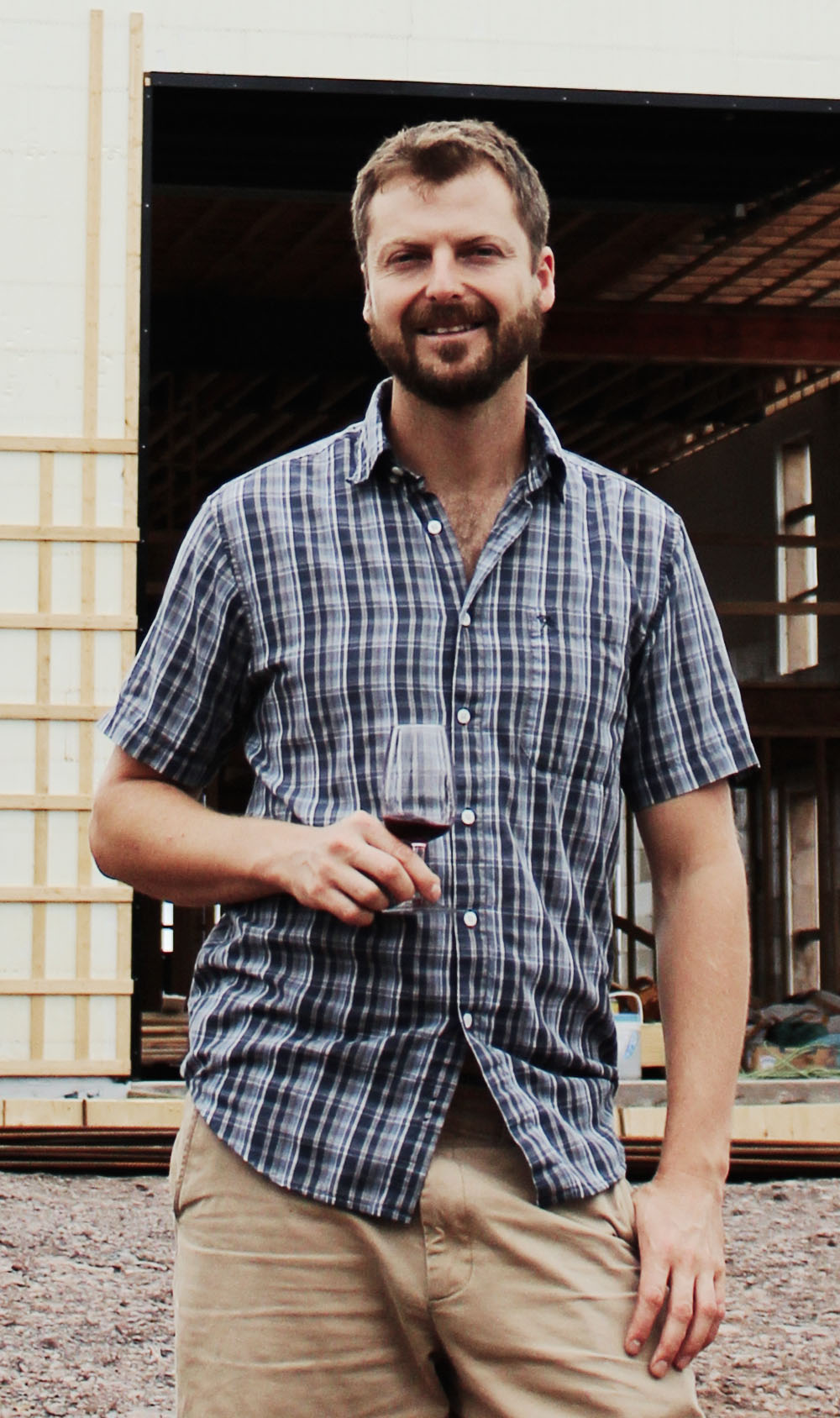
New Brunswick’s wine industry is growing. Although estimated by Vins NB Wines at a modest 80 tonnes of grapes per year, with an approximate economic impact of $7.75 million, recent changes have resulted in more optimism and investment.
Nova Scotia has received much more media attention lately — primarily because of the quality of their traditional method sparkling wines and the introduction of the Tidal Bay white wine appellation — but the actual number of wineries is not that different, around 20 in each province. The difference is that most of New Brunswick wineries are based on “other fruit,” whereas Nova Scotia has considerably more wine grape production.
But that is also changing. Since the New Brunswick Liquor Corporation (ABNL, the province’s liquor monopoly) introduced a grocery store program for New Brunswick wineries, the market for local wine has dramatically increased, which has induced investment in new grape vines and wine production.

The best example is the expansion ongoing at Magnetic Hill Winery in Moncton. According to The Wine Lover’s Guide to Atlantic Canada, published in 2016, Magnetic Hill makes 1,800 cases of wine a year, however, that will soon change.
“The sky is the limit now after this expansion,” says Zach Everett, winemaker and son of founders Jeff and Janet Everett, “We haven’t set a magic number of total cases, but we can easily say that we have the capacity to produce upwards of 20,000 cases of wine here now. Our immediate goal is 10,000 cases, but we can scale up from there comfortably in our new home.”
The nearly finished winery towers over the existing B&B and winery, which are nestled in among vineyards growing mostly Petite Pearl, a black grape originating from Minnesota.
The Everetts are making a significant investment in the province, and it’s all at their own risk. While Nova Scotia offers ample assistance in the form of low-interest loans for agricultural investment, New Brunswick has no similar program.
“This is turning out to be about a $2-million project in terms of buildout and equipment purchasing over the near future,” explains Everett, adding, “I am thinking that, next year, we’ll be going from an eight-person workforce to a 16-person workforce.”
He is quick to point out, though, that this investment has a much wider scope, in terms of its potential impact. “We grow and buy over 230,000 lbs of local fruit from a range of local farmers,” he notes. He also estimates that their wedding business alone — they typically host 20 per year — has a local impact in the six-figure range.
Magnetic Hill makes a lot of wine from strawberry, rhubarb, cranberry, blueberry and other local fruits, but what’s really exciting is their increase in grape planting. “We now have a proven track record with several harvests of some new cold-hardy varieties,” says Everett, “like Marquette out of Minnesota, that have shown us what quality and yields to expect, and it is leading to a lot of people on the fence right now about increasing plantings that we’ll commit to very soon.”
Although the new grocery store sales played a big factor in Magnetic Hill’s decision to expand, the winery was already having trouble keeping up with demand. Opened in 2005, it is one of just a few New Brunswick wineries easily accessible from a major route. In fact, as you drive through Moncton, the winery is visible from the Trans-Canada Highway.
“Our original winery was conceived as a 500-case winery where we would sell 100 percent from farm gate,” explains Everett, “We outgrew that in our first couple of years and have been on the fence with what to build ever since. We did have an expansion in mind back in 2011 or so, but we ended up being so frustrated by red tape and building-code bylaws that we scrapped that plan after more than a year of ‘back and forths’ and engineering plan changes. Since then, we were — and are — busting at the seams to keep up with demand.”
The younger Everett had previously been the owner and winemaker at a pioneering winery in Mexico, which focused on local fruit. “A consequence of the grocery store pilot program,” he says, “was that it actually made me move back to New Brunswick to buy a stake in the [family] winery and expand the business with my parents. We basically needed to grow to even think about being able to support two families here.”
Gillis of Belleisle Winery, in Springfield, not far from Saint John in the St. John River Valley, is another winery undergoing expansion to meet anticipated demand. “Our expansion is designed to meet the growing local demand through the grocery store program,” explains Alan Gillis, who runs the family-owned winery. “The rough investment is approximately $450,000, which includes our new storage building, wine press, pump, 40-plate filter system, mono-block bottling line and a few other odds and ends.”
“These [improvements] will allow us to maximize the value out of what we grow and buy from New Brunswick,” he notes. “An example of this is that our new press is pressing an estimated 200 litres more per tonne than our old press. This, in turn, means we are bottling more and have more product for the year, and will hopefully not run out of supply for the grocery stores … which is what’s going on with all the wineries at the moment.”
“With the expansion, we are increasing our existing workforce by one person, initially on a full-year basis,” adds Gillis.
Gillis of Belleisle’s expansion was supported, in part, by the Atlantic Canada Opportunities Agency, which provided a repayable loan of approximately $175,000, and a grant of around $30,000 from Opportunities New Brunswick.
With Magnetic Hill and Gillis of Belleisle as examples of positive growth, it is expected the province will see more investment and we’ll start seeing more New Brunswick wine joining BC, Niagara and Nova Scotia on liquor board shelves. This is the beginning of great things.
Magnetic Hill Illusions NV ($14.99)
A great example of rhubarb wine that surprises by coming across as a mostly dry, crisp, fruity white. It serves a purpose similar to a Pinot Grigio or Sauvignon Blanc. If you weren’t told it was rhubarb, you’d probably assume it was a grape wine, hence the name.
Magnetic Hill L’Acadie Blanc 2016 ($15.99)
A really great first go at L’Acadie for Magnetic Hill. Sourced from a local grower in New Brunswick, it has the signature white flower and green apple/pear notes of L’Acadie, and is medium-bodied, fresh and dry, with good acidity. Perfect with fresh fish and shellfish.
Magnetic Hill Mascaret ($15.99)
A red blend made mainly from Marquette with some Frontenac and Petite Pearl. A combination of estate fruit and other NB growers. It is dry, with a lot of similarity to some Pinot Noirs. Its firm acidity makes it a good food wine.
Gillis of Belleisle Premium Red ($25)
Winner of a silver medal at the 2017 All Canadian Wine Championships. 100% estate-grown Marquette. Smooth, with dark fruit and oak influence.
